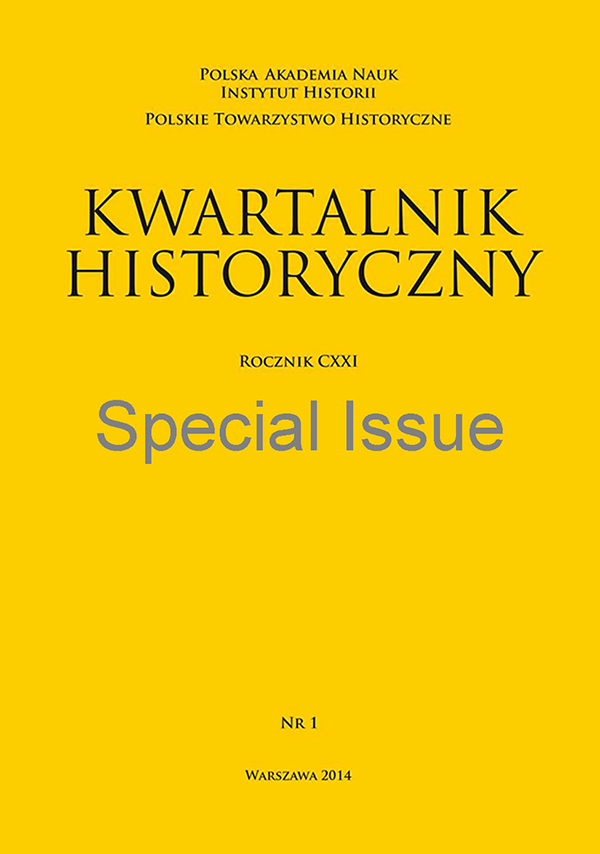By Coach to the Scaffold: Theatres of Remorse in Eighteenth-Century London
DOI:
https://doi.org/10.12775/KH.2014.121.SI.1.03Resumen
On January 14, 1767 Samuel Orton, London entrepreneur was driven to be hanged by a mourning coach. Most convicts, including those who travelled with him to the traditional city gallows at Tyburn were carted and the magistrates, whograntedhimthisprivilegewereclearlymakinganexception.Orton’scase and its analysis is informed by the detailed press reports read against the growing research into the evolution of London’s eighteenth-century bloody code and urban ‘theatres of death’. Strategies of penalizing crime are seen not as much in the light of statistics of death sentences as through their perception drawn by literate urban audiences from detailed press reports. The scenarios of hanging pirates, highwaymen and petty criminals traditionally included the edifying reports of the ‘last dying speeches’, while Orton, an educated businessman sentenced to death for a ‘new crime’ of forgery (punishable by death only from 1729) chose not to speak at the gallows but instead published an open letter professing himself a victim of market economy based on credit he could not satisfy. A death sentence mitigated by a gesture of granting him a coach is thus – on the one hand – a mark of lawmakers’ growing determination to penalize financial transgression, while – on the other – a sign of lingering social and ethical ambiguity about harshness such decisions of the court.
Descargas
Publicado
Cómo citar
Número
Sección
Stats
Number of views and downloads: 424
Number of citations: 0



